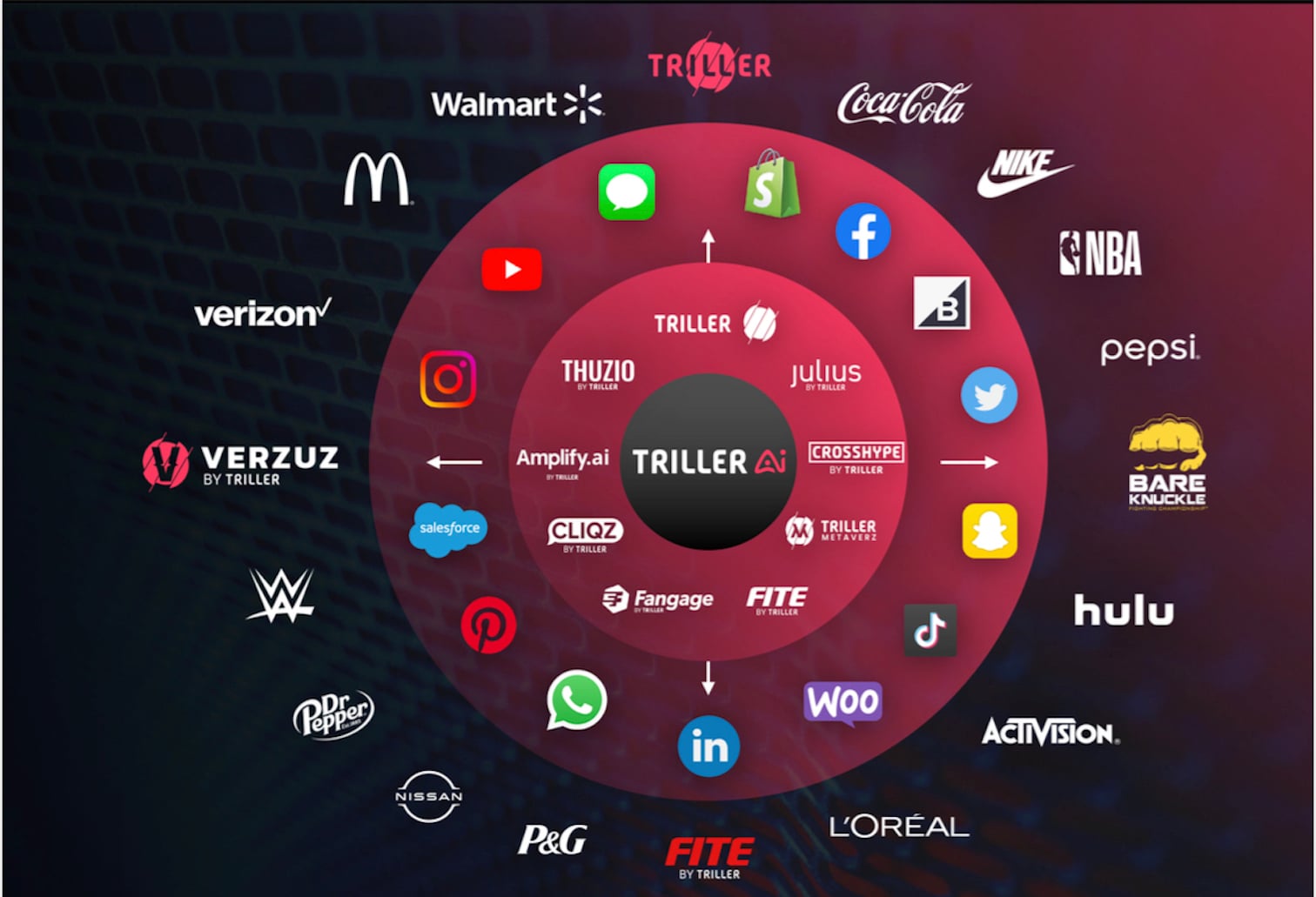After canceling a multibillion-dollar reverse merger in 2022, Hollywood-based Triller Corp. filed for a direct listing on the NYSE in August.
The social media and artificial intelligence platform filed an amended S-1 last month with the Securities and Exchange Commission indicating that the company is still pursuing that direct listing, aiming to execute it this year at an unspecified date. The new filing also disclosed a considerable amount of unpaid outstanding debt, a low cash balance, a mass purge of “bot” and duplicate accounts from its metrics and the recent appointment of a new chief executive.
Triller has an eponymous short-form video app and describes itself as an “AI-powered platform” for creators and brands to promote content, generate commerce and engage with fans.
Triller has faced, and continues to be involved with, several lawsuits regarding claims such as breach of lease and copyright infringement. The company’s recent filing states that it owes about $37 million, plus interest, to the owners of an event series that Triller acquired called Verzuz LLC; the owners claimed Triller had failed to make payments.
Triller’s SEC filings have consistently stated that it’s “not in compliance with the payment obligations of a significant number of our significant music licensing agreements and agreements with other vendors and counterparties” and, as of the end of December it had about $378 million of total liabilities, including unpaid music license liabilities of about $27.3 million.
Triller has about $500 million of equity available upon a public listing, though its cash balance is only $967,000. A company spokesperson said that the latest S-1 amendment would not be its “final filing” and that a new, revised filing will be posted prior to any direct listing.
The filing indicated that Triller co-founder and executive chairman Bobby Sarnevesht took over as the company’s chief executive in December, which was not openly reported on its company blog, website or social media platform. Sarnevesht replaced Mahi de Silva, who had held the position since early 2021 and whose contract term had expired. De Silva will stay on as chief executive of one of Triller’s subsidiaries, Truverse Inc. but, according to the filing, has not yet entered into a new employment agreement.
A source familiar with the matter said that de Silva’s tenure was intended to help Triller go public and that the leadership change will not impact anything operationally for Triller.
Triller has built much of its advertising on the volume of user accounts on its app, which it previously placed at about 550 million. However, it stated that a “proactive” and “robust” approach to address the number of “bot” and duplicate accounts in its user metrics led Triller to purge more than 200 million user accounts from those metrics, dropping its consumer account total to 327 million.
“If creators, brands and users do not perceive our metrics to be accurate representations, or if we discover material inaccuracies in our metrics, our reputation may be harmed and (users) may be less willing to utilize our technology platform or to allocate their budgets or resources to our products and services,” Triller’s filing said.
Finally, the amended S-1 noted that Triller’s recent acquisitions – including those of Verzuz, Amplify.ai and MashTraxx – have led to rapid growth. Triller stated that if operational growth continues, changes will be necessary to avoid difficulties with managing an increasing number of employees, integrating its acquisitions and appropriately handling financial reporting.
“We have identified material weaknesses and significant deficiencies in our internal control over financial reporting,” Triller said. “If our operations continue to grow, we will be required, among other things, to upgrade our information systems and other processes and to obtain more space for our expanding administrative support and other personnel.”
Triller’s pursuit of direct listing continues, though it has not reported when exactly it might occur. By proceeding with a direct listing, rather than an initial public offering, Triller would list its existing shares on a stock exchange without creating new shares and without involving an underwriter or intermediaries.
A source familiar with the matter said Triller’s next filing would likely show the conversion or retirement of about $200 million of debt and liabilities, including those related to Verzuz.

